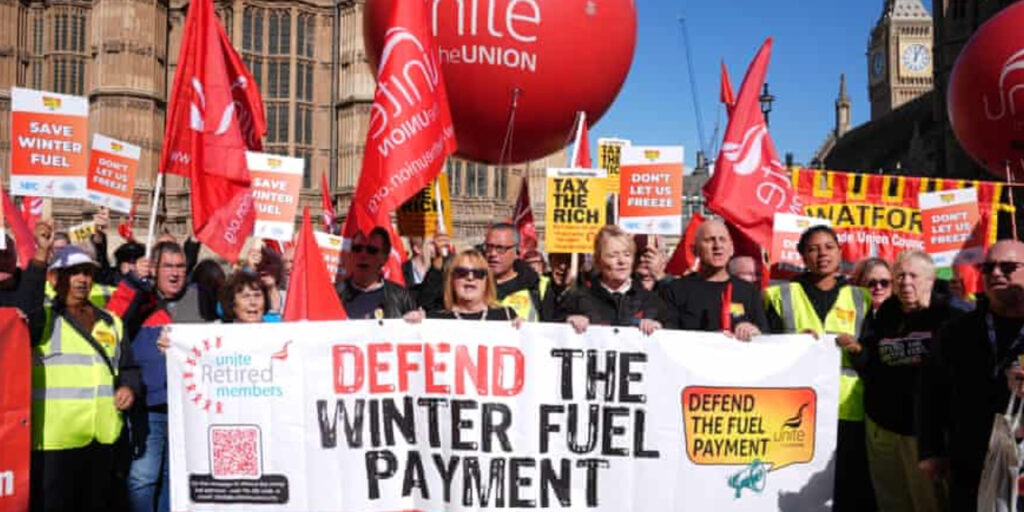Cuts to the winter fuel allowance could force 100,000 pensioners in England and Wales into relative fuel poverty, according to UK government analysis. The decision to remove this benefit from millions of pensioners has sparked criticism and mounting pressure on ministers following last month’s budget announcement.
Internal government modeling reveals that around 50,000 people will fall into relative poverty next year, with another 50,000 expected by the end of the decade. The figures consider housing costs but do not include the increased number of pensioners claiming pension credit following a government campaign earlier this year.
The findings were disclosed in a letter from Liz Kendall, the Work and Pensions Secretary, to Debbie Abrahams, chair of the work and pensions select committee, on a day marked by plunging temperatures and the season’s first snowfall. The letter coincided with protests in Westminster, where thousands of farmers demonstrated against inheritance tax increases on agricultural properties.
Kendall defended the cuts, stating: “Means-testing winter fuel payments was not a decision this government wanted or expected to take. However, we were forced to take difficult decisions to balance the books in light of the £22bn black hole we inherited.”
She added, “It’s right that we target support to those who need it most while stabilizing the economy.” The government has redirected efforts toward encouraging pensioners to claim pension credit, which guarantees access to winter fuel payments.
Labour leader Sir Keir Starmer, speaking at the G20 summit in Rio, emphasized the government’s commitment to stabilizing the economy while protecting pensioners. “We’ve driven campaigns to boost pension credit uptake, ensuring more pensioners receive winter fuel allowances and additional benefits,” he stated. He highlighted that budget measures enabled Labour to increase the state pension by £470.
However, critics argue that the cuts will have devastating effects. Abrahams expressed concern about the impact on low-income pensioners, stating: “We remain deeply worried about the effects of restricting winter fuel payments.” Labour MPs and supporters have also voiced strong opposition. Some MPs defied party orders by voting against the cuts, and Scottish Labour leader Anas Sarwar pledged to reinstate payments if elected in 2026.
The changes, introduced by Chancellor Rachel Reeves in July, reduce the number of eligible recipients from 11.4 million to 1.5 million, restricting payments to those on pension credit. Ministers admitted in September that no impact assessment was conducted before implementing the policy. According to government data, these cuts will raise the relative pensioner poverty rate by 0.6 percentage points by 2030. About 1% of affected households will face relative poverty, defined as income below 60% of the median.
Charity groups and pensioner advocates have condemned the policy. Caroline Abrahams, charity director at Age UK, criticized the decision, stating: “Rationing winter fuel payments will increase the number of pensioners living below the poverty line—this year and into the future.”
Jan Shortt, general secretary of the National Pensioners Convention, described the policy as “unacceptable,” adding: “This decision makes older people collateral damage for government austerity measures.”
Shadow Work and Pensions Secretary Helen Whately called for a reversal, saying: “Now that Labour’s true impact on pensioners has been revealed, it’s time to correct this wrong.”
The winter fuel allowance cuts are among several controversial measures announced in Reeves’ budget, including a planned rise in national insurance for employers. Business groups have warned that the tax increases could lead to significant job losses. More than 70 major companies have appealed to the chancellor, arguing that these measures will harm businesses and workers alike.
Luke Tryl, director of the research group More in Common, commented on X: “While some saw the budget as a relief, key groups like pensioners, small businesses, and farmers are bearing the brunt—and public sympathy is firmly on their side.”


